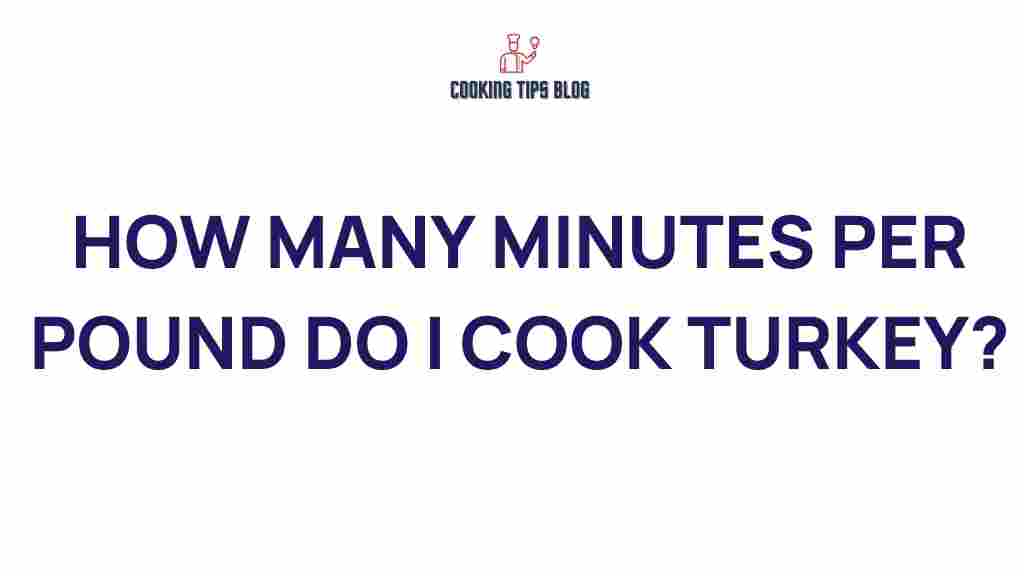Turkey Cooking Time: Your Ultimate Guide
The holiday season is upon us, and for many, that means one thing: it’s turkey time! Mastering the art of cooking the perfect turkey is essential for a memorable feast. Knowing the appropriate turkey cooking time is crucial to ensure your turkey is juicy, flavorful, and cooked to perfection. In this article, we will delve into everything you need to know about turkey cooking times, including how to calculate them based on the weight of the turkey, cooking methods, and some expert tips to make your turkey the star of the show.
Understanding Turkey Cooking Times
Turkey cooking times can vary based on several factors, including the weight of the turkey, whether it’s stuffed or unstuffed, and the cooking method you choose. Here’s a quick overview of the basic guidelines:
- Unstuffed Turkey: 13 minutes per pound at 350°F (175°C)
- Stuffed Turkey: 15 minutes per pound at 350°F (175°C)
For example, a 12-pound unstuffed turkey would take approximately 2.5 to 3 hours to cook, while a stuffed turkey of the same weight could take about 3 to 3.5 hours.
Calculating Turkey Cooking Time
To calculate the turkey cooking time, follow these steps:
- Weigh your turkey. If it’s frozen, make sure to thaw it completely in the refrigerator (allow 24 hours for every 4-5 pounds).
- Determine whether your turkey is stuffed or unstuffed.
- Use the appropriate cooking time per pound from the guidelines above.
- Preheat your oven to 350°F (175°C).
Cooking Methods and Their Impact on Cooking Time
The method you choose to cook your turkey will also affect the overall turkey cooking time. Here’s a breakdown of some popular cooking methods:
Roasting
This is the traditional method and often yields the best results. Follow the guidelines provided above for roasting.
Deep Frying
Deep-fried turkey cooks much faster than roasted turkey. Typically, you should allocate about 3 to 4 minutes per pound. For example, a 12-pound turkey would take approximately 36 to 48 minutes.
Grilling
Grilling a turkey can give it a unique flavor. The cooking time is similar to roasting, but you should monitor the internal temperature closely. Use indirect heat and allocate about 13-15 minutes per pound.
Smoking
Smoking a turkey can take significantly longer, generally around 30 minutes per pound. However, the flavors are worth the wait!
Using a Meat Thermometer
Regardless of the cooking method, using a meat thermometer is the best way to ensure your turkey is cooked safely and perfectly. Here’s how to use it:
- Insert the thermometer into the thickest part of the thigh without touching the bone.
- The internal temperature should reach at least 165°F (74°C) for safe consumption.
- If your turkey is stuffed, check the temperature in the center of the stuffing as well.
Resting Your Turkey
After removing your turkey from the oven, allow it to rest for at least 20-30 minutes before carving. This helps redistribute the juices, ensuring a moist and flavorful turkey. Cover it loosely with aluminum foil to retain heat.
Troubleshooting Common Turkey Cooking Issues
Even the most seasoned cooks can run into issues while preparing turkey. Here are some common problems and their solutions:
Turkey is Overcooked
If your turkey ends up dry, consider the following:
- Use a brine next time to enhance moisture.
- Cover the turkey with foil during the cooking process to prevent over-browning.
- Clearly monitor the internal temperature.
Turkey is Undercooked
If your turkey isn’t done after the expected cooking time:
- Check the temperature in multiple spots.
- Return it to the oven immediately until it reaches 165°F (74°C).
Uneven Cooking
To ensure an evenly cooked turkey:
- Allow the turkey to come to room temperature before cooking.
- Truss the turkey properly to ensure even cooking.
- Rotate the turkey halfway through cooking if using a conventional oven.
Conclusion: Mastering Your Turkey Cooking Time
Mastering the perfect turkey begins with understanding the turkey cooking time and adhering to best practices for cooking and preparation. By following the guidelines outlined in this article, you’ll be well on your way to impressing your guests with a succulent, perfectly cooked turkey.
Remember, practice makes perfect! Don’t hesitate to experiment with different cooking methods, brining techniques, and seasonings to find the perfect combination for your taste buds. And for more tips on holiday cooking, check out our guide on Holiday Cooking Essentials.
For additional resources, you can also visit USDA Guidelines for Turkey Cooking to ensure you’re following the safest practices. Happy cooking!
This article is in the category Recipes and created by Cookingtipsblog Team
